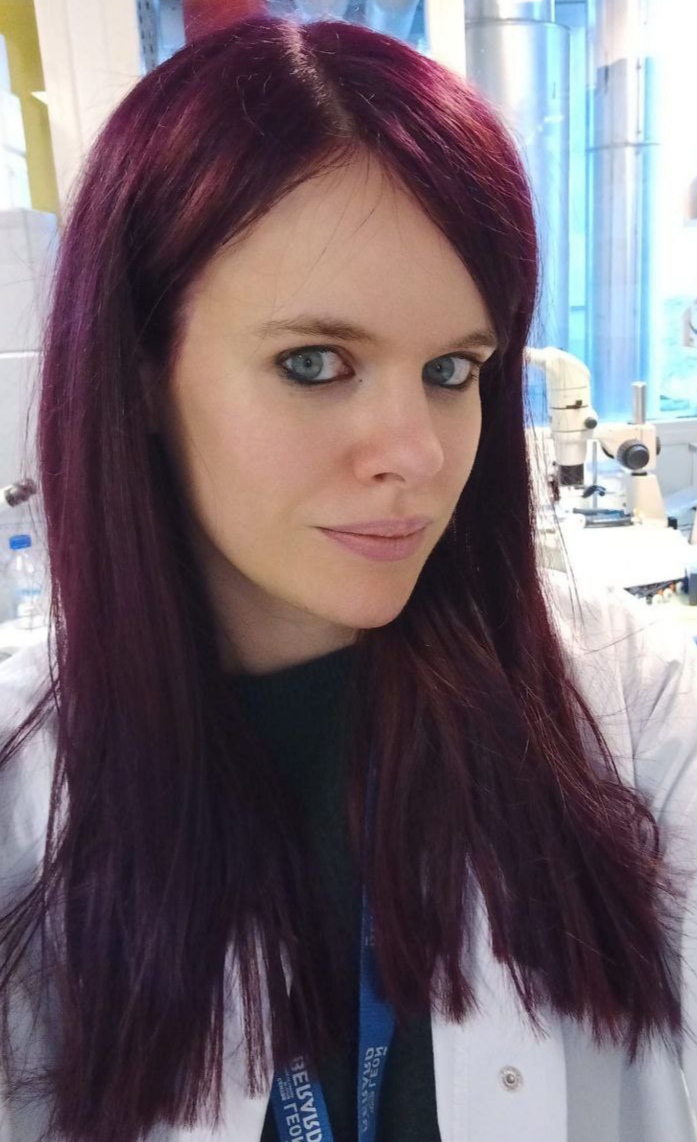Centre de recherche en cancérologie de Lyon (CRCL)
“ Blockade of the pro-fibrotic reaction mediated by the miR-143/-145 cluster enhances the responses to targeted therapy in melanoma”
Diazzi, S., A. Baeri, J. Fassy, M. Lecacheur, O. Marin-Bejar, C. A. Girard, L. Lefevre, C. Lacoux, M. Irondelle, C. Mounier, M. Truchi, M. Couralet, M. Ohanna, A. Carminati, I. Berestjuk, F. Larbret, D. Gilot, G. Vassaux, J. C. Marine, M. Deckert, B. Mari and S. Tartare-Deckert EMBO Mol Med 14(3): e15295. DOI:10.15252/emmm.202115295
https://pubmed.ncbi.nlm.nih.gov/35156321/
Cv
Serena Diazzi, 30-years old, is PhD in Molecular and Cellular Biology at the Université Côte d'Azur. After completing her bachelor's degree in Biology, she enrolled for a double degree master program promoted from Università Degli Studi di Milano-Bicocca and Université Paris Diderot to specialize both in Molecular Biology and Genetics. During the master's internship at the Institute Jacques Monod in Paris, she studied the role of the Nodal gene in melanoma progression. Fascinated by the plasticity of this cancer, she successfully applied for the highly competitive international Labex Signalife PhD program on a joint project in the teams "Microenvironment, Signalling and Cancer" headed by Sophie Tartare-Deckert at C3M (Nice, France) and "Non-coding genome and lung disorders" headed by Bernard Mari at IPMC (Valbonne, France). Her PhD project stemmed from the joined expertise of the two teams and focused on investigating the role of microRNAs in the regulation of post-transcriptional signalling networks regulating the dedifferentiated resistant cell state acquired by melanoma cells in response to MAPK-targeted therapies. After her PhD defence in March 2021, she joined the team “Adhesion and signalling in metastatic melanoma” headed by Julien Ablain at CRCL in Lyon as post-doctoral researcher to complete her training and specialized in the field of microenvironment-mediated drug resistance.
Contact
CRCL 28 rue Laennec, 69008 Lyon
This email address is being protected from spambots. You need JavaScript enabled to view it.
Twitter: @SerenaDiazzi
Résumé de l'article
Lineage dedifferentiation toward a mesenchymal-like state displaying myofibroblast and fibrotic features is a common mechanism of adaptive and acquired resistance to targeted therapy in melanoma. Here, we show that the anti-fibrotic drug nintedanib is active to normalize the fibrous ECM network, enhance the efficacy of MAPK-targeted therapy, and delay tumor relapse in a preclinical model of melanoma. Acquisition of this resistant phenotype and its reversion by nintedanib pointed to miR-143/-145 pro-fibrotic cluster as a driver of this mesenchymal-like phenotype. Upregulation of the miR-143/-145 cluster under BRAFi/MAPKi therapy was observed in melanoma cells in vitro and in vivo and was associated with an invasive/undifferentiated profile. The 2 mature miRNAs generated from this cluster, miR-143-3p and miR-145-5p, collaborated to mediate transition toward a drug-resistant undifferentiated mesenchymal-like state by targeting Fascin actin-bundling protein 1 (FSCN1), modulating the dynamic crosstalk between the actin cytoskeleton and the ECM through the regulation of focal adhesion dynamics and mechanotransduction pathways. Our study brings insights into a novel miRNA-mediated regulatory network that contributes to non-genetic adaptive drug resistance and provides proof of principle that preventing MAPKi-induced pro-fibrotic stromal response is a viable therapeutic opportunity for patients on targeted therapy.




